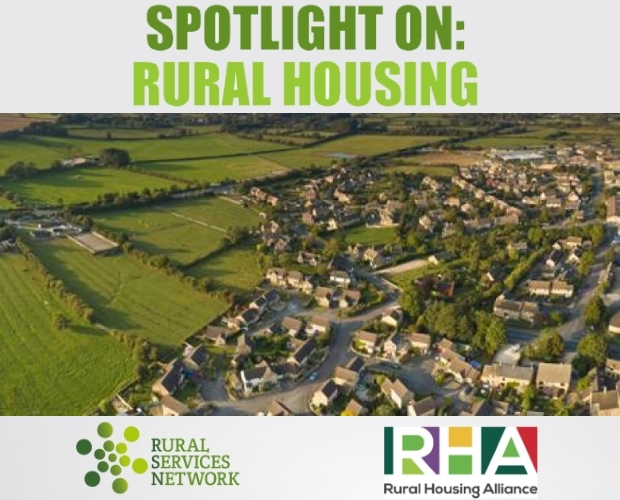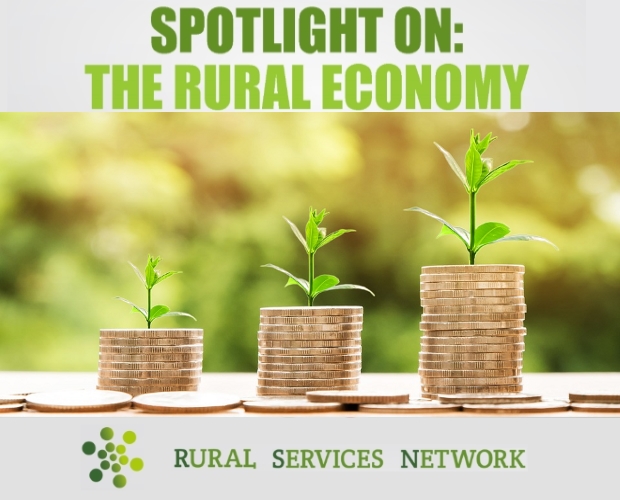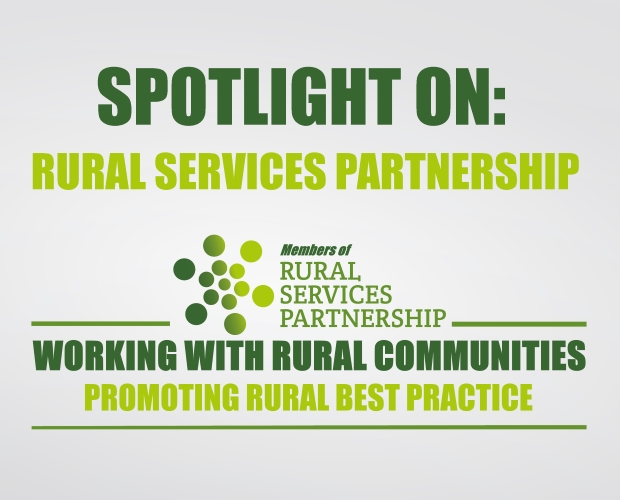T: 01822 851370 E: admin@sparse.gov.uk
Hinterland - 04 May 2020

In Hinterland this week - rural vigilantes, travellers, rural economies, care homes, lifting lockdown and giant rabbits. Read on…
* * *
Police in England warn rural vigilantes not to take law into own hands during lockdown
Sadly this pandemic has the capacity to bring out not just the best but also the worst in us as this story tells. No vigilantes are required in rural England….
Some rural dwellers in England have turned to vigilantism by attempting to block roads, confront cyclists and erect signs in an effort to deter people from travelling to the countryside for exercise during the lockdown, the Guardian has been told.
The National Rural Crime Network has received reports of “small-scale vigilantism” by some residents growing angry at people driving long distances to the countryside, including beauty spots, for walks or cycle rides. In a worrying development, the organisation’s chair said people had even been “aggressively driving at cyclists”.
Their behaviour has caused concern with those who point out people enjoying the countryside to exercise are not necessarily breaking government rules if they maintain physical distancing, with one police leader warning vigilantes not to take the law into their own hands.
The Guardian has learned of a case in the Lake District where an abusive note was left on the windscreen of a family’s car by a man who also threatened to damage their vehicle after they drove four miles from their home to go for a walk.
Channel 4’s ‘dehumanising’ Truth About Traveller Crime hit with more than 800 Ofcom complaints
I often feature travellers in Hinterland. I feel they are a mysterious and often misunderstood group. I really don’t like the sort of documentary profiled here, the fewer of these sort of stories the better!!
Channel 4’s controversial documentary Dispatches: Truth About Traveller Crime has been hit with more than 800 Ofcom complaints, with thousands more expected to flood in from the traveller community.
The 45-minute documentary hosted by Anja Popp focused on crime allegedly perpetrated by the community in the market town of Lutterworth, Leicestershire, which is home to 9,353 people, while exploring crimes linked to traveller sites across England.
In the documentary, Anja goes in search of the truth about crimes linked to traveller sites. She talks to members of the public who have experienced crime waves and intimidation, goes out on patrol with police dealing with rural incidents and hears from travellers and their advocates, who say they suffer prejudice and attack.
After the programme aired, national charity Friends, Families and Travellers, which works on behalf of all Gypsies, Roma and Travellers launched a complaint letter to Channel 4 and Ofcom, which already has over 7000 signatures.
How coronavirus crisis is affecting rural areas - and what experts say needs to be done
Well done for the folks at CRE for getting this think piece out so quickly. I have just finished leading a team interviewing 44 businesses over 4 days in a coastal local authority area and the results of that work are not for the squeamish! This story tells us:
The Centre for Rural Economy is a research centre at Newcastle University, which specialises in research that aims to achieve sustainable development in rural areas.
It has recently published a new briefing note, which considers the impact of the coronavirus outbreak on rural economies and communities.
The report’s summary states: ‘The disease is affecting all aspects of rural society, both directly when people from rural communities fall ill, but also because of the social-distancing restrictions that are in place to limit the progress of the disease.
‘It is impacting household incomes and rural businesses in every sector within our diverse rural economies, as well as charitable and community organisations. Some of these impacts will also be medium or long-term.’
It notes that past crises – such as the foot and mouth outbreak in 2001 and the most recent financial crisis and recession ‘have highlighted the resilience and adaptability of rural economies’.
It goes on: ‘Some of the structural features of rural areas, notably their more dispersed population base and their already established tradition of home-based working could well serve to act as a source of resilience during this crisis.
‘On the other hand, more severe restrictions placed in this crisis on personal travel for non-essential purposes may impact more heavily on rural areas, due to the greater dispersal of workplaces, consumer and business services, and the importance of visitor economies to many rural areas.’
The briefing notes sets out a range of recommendations for the Government, which includes the introduction of support measures for social and community enterprises active in rural areas, and to ‘put in motion plans for a medium term-package of measures to help reboot and build capacity among rural businesses, social enterprises and their networks’.
Care home death toll likely to go up, says top health official
Care homes in rural areas are where the toughest battles against the pandemic are being fought and the people who work there are my personal heroes, including the people who looked after my own father-in-law in his last lonely hours this week. This story tells us:
The number of deaths from coronavirus in care homes may have to be revised upwards, a senior Public Health England official has admitted, as the government confirmed the total number of deaths from the pandemic has risen to more than 26,000.
After indicating that deaths in care homes and in the community may still be rising, Yvonne Doyle, PHE’s medical director, told Wednesday’s daily Downing Street press briefing the figure for deaths may be revised again.
“In due course those deaths sadly may occur on death certificates, so we may expect more than we are seeing at the moment, yes,” she said.
Doyle’s words followed the announcement that 26,097 patients had died across the UK after testing positive for coronavirus. That was 3,811 deaths more than the figure available on Tuesday, the foreign secretary, Dominic Raab, said.
Coronavirus lockdown: Business group calls for phased easing
I am increasingly clear in my mind that how we manage this will determine the medium term future of rural areas. With up to a third of the workforce furloughed in some rural places, unless an insightful approach is taken when these props are removed we will see mass unemployment and business failure. I wonder how many people in this period of the “phoney war” realise the threat around the corner. In the US where the state is not so benign 20 million people have registered for unemployment benefit over the last four weeks.
Ministers should immediately set out plans for a "carefully phased" lifting of the UK's coronavirus lockdown, a business group has said.
"This is a time to be bold," said the British Chambers of Commerce, adding high public spending should continue if needed to restart the economy.
Boris Johnson has said he will outline plans relating to schools, commuting and the workplace in the coming week.
But the PM stressed the UK must not "risk a second spike" in infections.
Transport secretary Grant Shapps told the BBC that businesses could be asked to stagger employees working hours, once lockdown eases, to help prevent crowding on public transport.
"There are a series of different things that we can do including staggering work times, and we're working with businesses and organisations to do that," he said.
The British Chambers of Commerce (BCC) said business groups and major employers expect to receive draft guidance from the government on Sunday about the safe return to work when the lockdown eases.
In a letter to Mr Johnson, BCC president Baroness Ruby McGregor-Smith said planning and communication of the government's approach to leaving lockdown "must begin immediately if we are to harness the public health and economic benefits".
https://www.bbc.co.uk/news/uk-52518346
And FInally
Coronavirus: The Suffolk Rural college staff caring for animals in lockdown
A heart-warming animal story to end with this week. Great picture of a giant rabbit accompanies this article.
With lambing season in full swing and many animals to feed, life remains busy at Suffolk Rural college despite the coronavirus lockdown.
With 800 students working from home, four staff members remain on site in Otley looking after its range of animals, from ewes and goats to snakes and giant rabbits.
They keep the students informed of what is going on through social media and film what they have been up to.
Animal technician demonstrator Jennifer Dow said: "Obviously we can't look after these guys [animals] remotely because they're here in the centre, so we're doing all that we can to come into the unit and make sure these guys are happy and healthy."
About the author:
Hinterland is written for the Rural Services Network by Ivan Annibal, of rural economic practitioners Rose Regeneration. |
YOU MAY ALSO BE INTERESTED IN
SIGN UP TO OUR NEWSLETTER
Sign up to our newsletter to receive all the latest news and updates.









